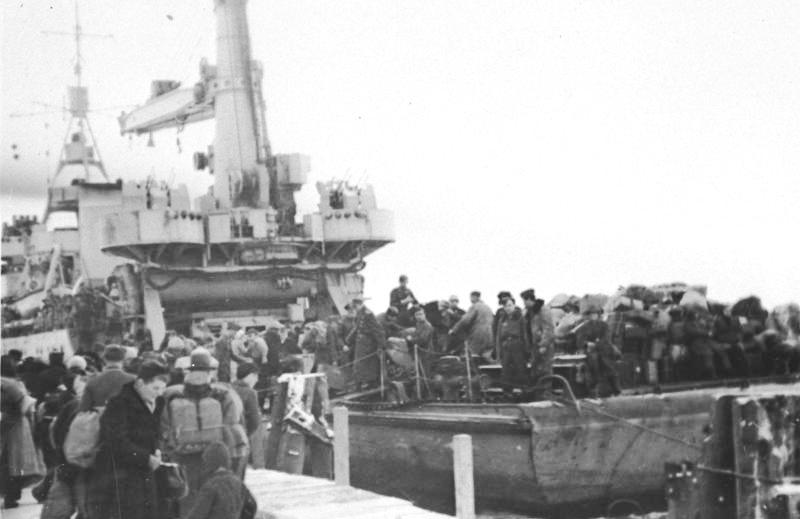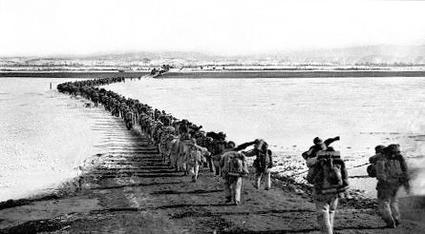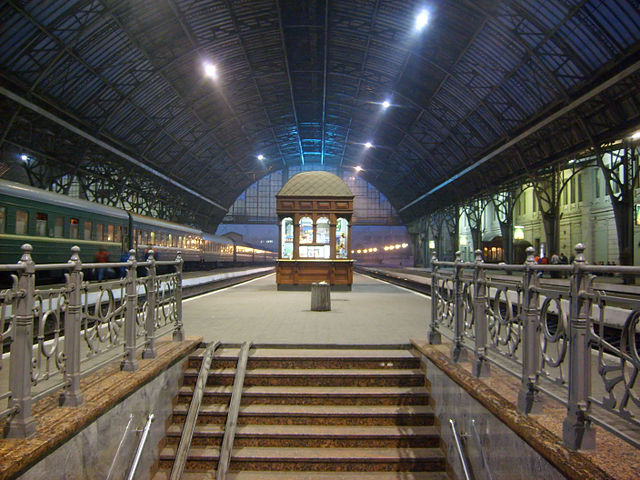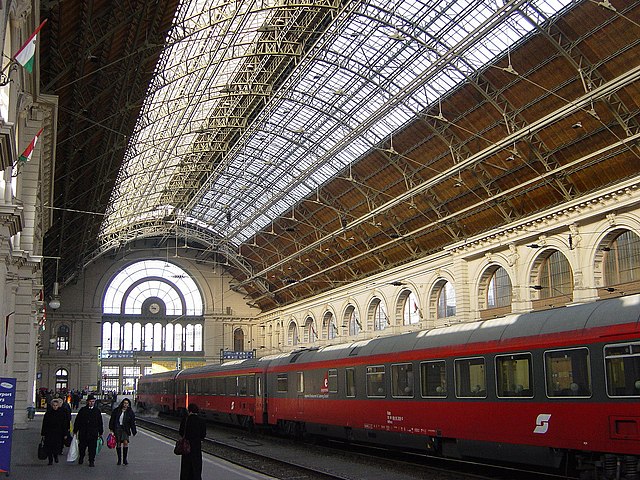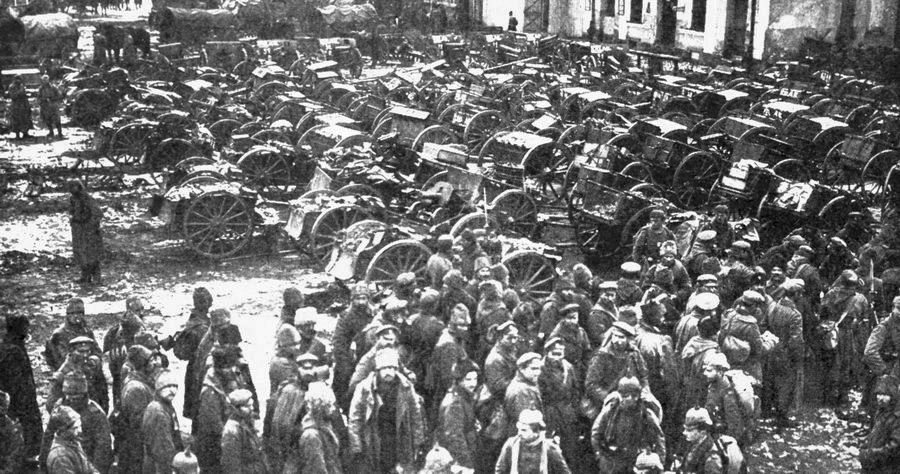Hey! This is my first attempt at making a plausible timeline, so do correct me if some parts don't seem that way. Constructive criticism is always welcome. Also, the next one will take a long time, so sorry if I don't respond soon. Special thanks to those who responded in my previous WI threads on the subject, and on related and duplicate WI topics. Also, I know there's another thread running on the same premise, but I feel like making my own take on it.
Anyway, without further delay...

Prussia - A Kaliningrad Story (1945-Present)
A Post-WWII Timeline
Playing: Gundam: The Origin - Main Theme - composed by Takayuki Hattori

Content
Baltic Fleet HQ, Kaliningrad, West Baltic SSR [1], Union of Soviet Socialist Republics
21st August, 1991
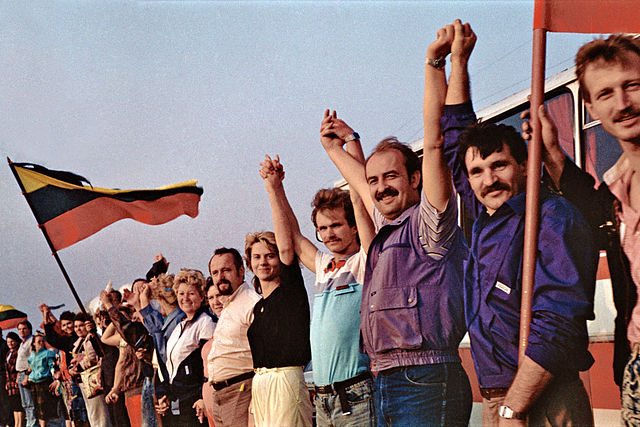
Kaliningrad, home of the Soviet Baltic Fleet of the USSR.
Half a century ago, the city that was to bear the name of the wartime president of the USSR was a German city, with a name that exuded everything Germanic about its seven hundred year long past,. It was a name the Soviet government believed wiped from the map forever, after taking the territory for themselves as a spoil of war in the Great Patriotic War. After which, Kaliningrad and its surrounding area was rebuilt as a Soviet port, flooded by immigrants from the rest of the Soviet Unon, most from Russian-speaking areas. However, no amount of machinations performed on the city in the name of socialist realization had exorcised the ghosts of old Königsberg. Rather, looking into the city now, there were many who felt that they had, at last, advanced in full force, as the union reached its grim, inevitable twilight.
It was a surreal sight for the garrison, barricaded in front of hordes of protesters marching forward to confront them. For some, having been forced to withdraw from Lithuania in January the previous year, seeing Russian slogans interspaced with Prussian flags while demanding their expulsion was hypocrisy at its highest. The protesters were not ethnic nationalists. Many were Russophones, even ethnic Russians, almost all of whom would have family ties with the homeland. And yet, seeing the slogan 'Free Kyonigsberg' painted in Cyrillic on their signs, it felt a lot like they were possessed by Prussian ghosts, out to reclaim the city in for their Teutonic brethren. This was not a call for democracy like the Yeltsinski mobs. They want Moscow out.
Looking beside the barricade as the protesters, a bewildered guard shook his head in disbelief at the sights. He was sure had anyone told him a few years ago that this would happen, he would have assumed he had lost it. Now, he was sure he was the one going mad instead. He would have expected this had he been in the other Baltic SSRs, but Kaliningrad was as Russian as Russia itself, and yet they now threaten to break away like the rest.
“This is insane,” the hapless man remarked to one of his comrades, his AK-74 held down in his hands, “not even NATO could create this. They're possessed, I tell you! Germaniye ghosts, the lot of them!”
“Get a grip, boy,” grumbled the elder, more gruff soldier, still holding his position behind a barricade ready to fire, “these aren't ghosts. Our world's going south, and they want to jump ship. The only thing left to do is watch everything burn. Only question is, who burns first?”
The coup had become a dangerous trigger, with events escalating beyond their control. The commanders of the garrison did not know who to answer, whether it was the detained secretary general or the radicals in control of the Moscow White House. It would not have taken much just to send in the tanks, as the Chinese had done in Tiananmen. But force at this point was ineffective without proper command, and none of the guards holed up in the HQ were sure the ground they were on had any intention to remain Soviet anymore. After all, while many in the West Baltic SSR voted in favour of Gorbachev's proposed Union State, the turnout was barely in the mid 30s to 40s percentage [2]. Most boycotted the proceedings as a sham, intent on independence as their only answer. The ruling Novaya Prussiya (Russian: Новая Пруссия, New Prussia) party, for one, apparently believed it to be the case.
But the results of the soldiers' predicamented extended beyond Gorbachev's troubled reforms. A representation of the messy social experiments conducted during the Khrushchev period in developing the 'international' city, Kaliningrad was stacked full of ethnicites throughout the USSR, some of whom were simply tossed there without approval. Converted from a 'military-governed district' established by Stalin after the Great Patriotic War, Kaliningrad Oblast, and later West Baltic SSR mutated under the whims of his successor, bought by an ambitious commissar's promises of a multi-ethnic, socialist utopia to put the segregationist United States to shame [3]. Today, the divisive demographics of the SSR showed, now united in their ire for the central government, and bouyed by a spike in interest in Prussian intellectual history and culture. One could only imagine what went through the late premiers' minds when they led their descendants into this predicament, from the city's separation from civilian rule under Stalin, to the transmogrification of its identity into the Teutonic spectre it is today.
Soon, voices cracked in the radioes of the crewmen as the noise from the protester began to mutate into cheers. It was the voice of the West Baltic parliament. The die was cast.
“...persuant to current crisis surrounding the state coup in the Union of Soviet Socialist Republics, on August 19 of the Year 1991 of the Common Era; and in accordance to the will of the people of the Soviet Socialist Republic of the West Baltic, the Supreme Soviet of the West Baltic SSR hereby advocate the right of separation under Article 72 of the Constitution of the Union of Soviet Socialist Republics, henceforth implementing the Act of Declaration of Independence of the Republic of the West Baltic, in separation from the Union of Soviet Socialist Republics as a sovereign, independent nation-state...”
This was no longer the beginning of the end, and those cornered within the base could now see their ignoramous departure in sight. Like the other Baltic states, the West Baltic republic would continue its drift to the European sphere, though its birth was unlike the forcible incorporation of its sisters during the chaos of war. In many respects, the West Baltic was comparatively loyal to Moscow, not the least since it had no defining national identity at the start. But what sucked this otherwise loyal entity of the Soviet state into the hysteria of the Baltic Way at the end? What inspired its people to take on the mantle of the much-demonized Teutonic Knights and the Baltic Old Prussians before it? What created Prussia as the world saw it today? The answer, perhaps, laid at the beginning, as the burning embers of fascism and Ostsiedlung were being snuffed out in Königsberg...

______________________________________
Anyway, without further delay...

Prussia - A Kaliningrad Story (1945-Present)
A Post-WWII Timeline
Playing: Gundam: The Origin - Main Theme - composed by Takayuki Hattori

Content
- Prologue: Liberation (here)
- Chapter I: Trophy
- Chapter II: Maverick
- Interlude I: Faces
- Chapter III: Dream
- Interlude II: Family
- Chapter IV: Voices
- Interlude III: Legacy
- Chapter V: People
- Interlude IV: Amber - Economics of Prussia
- Chapter V (Continued)
- Chapter VI: Bloodlines (Germans)
- Interlude V: Engagement
- Interlude VI: Legend
- Chapter VII: Song (Finnic peoples)
- Interlude VII: Brotherhood (Yugoslavs)
- Omake
- Banishing the Red Ghosts: De-Sovietization of place names in Prussia
- Journey to Rio: Prussia's Olympic Team in the XXXI Olympics opening ceremony in Rio de Janerio
- Tuva: The Forgotten Steppes - A brief history of Tuva
- Information
- Politics and Government
- Schools
- Demographics
- Rank Table by kyuzoaoi
- Prussian Navy Uniform Designs by kyuzoaoi
- Football Clubs by @Neoteros
- Anthem: Ostpreußenlied - composed by Herbert Brust
- Side Timeline (ASB): Girls und Panzer: The Masked Turk
______________________________________
Baltic Fleet HQ, Kaliningrad, West Baltic SSR [1], Union of Soviet Socialist Republics
21st August, 1991

Kaliningrad, home of the Soviet Baltic Fleet of the USSR.
Half a century ago, the city that was to bear the name of the wartime president of the USSR was a German city, with a name that exuded everything Germanic about its seven hundred year long past,. It was a name the Soviet government believed wiped from the map forever, after taking the territory for themselves as a spoil of war in the Great Patriotic War. After which, Kaliningrad and its surrounding area was rebuilt as a Soviet port, flooded by immigrants from the rest of the Soviet Unon, most from Russian-speaking areas. However, no amount of machinations performed on the city in the name of socialist realization had exorcised the ghosts of old Königsberg. Rather, looking into the city now, there were many who felt that they had, at last, advanced in full force, as the union reached its grim, inevitable twilight.
It was a surreal sight for the garrison, barricaded in front of hordes of protesters marching forward to confront them. For some, having been forced to withdraw from Lithuania in January the previous year, seeing Russian slogans interspaced with Prussian flags while demanding their expulsion was hypocrisy at its highest. The protesters were not ethnic nationalists. Many were Russophones, even ethnic Russians, almost all of whom would have family ties with the homeland. And yet, seeing the slogan 'Free Kyonigsberg' painted in Cyrillic on their signs, it felt a lot like they were possessed by Prussian ghosts, out to reclaim the city in for their Teutonic brethren. This was not a call for democracy like the Yeltsinski mobs. They want Moscow out.
Looking beside the barricade as the protesters, a bewildered guard shook his head in disbelief at the sights. He was sure had anyone told him a few years ago that this would happen, he would have assumed he had lost it. Now, he was sure he was the one going mad instead. He would have expected this had he been in the other Baltic SSRs, but Kaliningrad was as Russian as Russia itself, and yet they now threaten to break away like the rest.
“This is insane,” the hapless man remarked to one of his comrades, his AK-74 held down in his hands, “not even NATO could create this. They're possessed, I tell you! Germaniye ghosts, the lot of them!”
“Get a grip, boy,” grumbled the elder, more gruff soldier, still holding his position behind a barricade ready to fire, “these aren't ghosts. Our world's going south, and they want to jump ship. The only thing left to do is watch everything burn. Only question is, who burns first?”
The coup had become a dangerous trigger, with events escalating beyond their control. The commanders of the garrison did not know who to answer, whether it was the detained secretary general or the radicals in control of the Moscow White House. It would not have taken much just to send in the tanks, as the Chinese had done in Tiananmen. But force at this point was ineffective without proper command, and none of the guards holed up in the HQ were sure the ground they were on had any intention to remain Soviet anymore. After all, while many in the West Baltic SSR voted in favour of Gorbachev's proposed Union State, the turnout was barely in the mid 30s to 40s percentage [2]. Most boycotted the proceedings as a sham, intent on independence as their only answer. The ruling Novaya Prussiya (Russian: Новая Пруссия, New Prussia) party, for one, apparently believed it to be the case.
But the results of the soldiers' predicamented extended beyond Gorbachev's troubled reforms. A representation of the messy social experiments conducted during the Khrushchev period in developing the 'international' city, Kaliningrad was stacked full of ethnicites throughout the USSR, some of whom were simply tossed there without approval. Converted from a 'military-governed district' established by Stalin after the Great Patriotic War, Kaliningrad Oblast, and later West Baltic SSR mutated under the whims of his successor, bought by an ambitious commissar's promises of a multi-ethnic, socialist utopia to put the segregationist United States to shame [3]. Today, the divisive demographics of the SSR showed, now united in their ire for the central government, and bouyed by a spike in interest in Prussian intellectual history and culture. One could only imagine what went through the late premiers' minds when they led their descendants into this predicament, from the city's separation from civilian rule under Stalin, to the transmogrification of its identity into the Teutonic spectre it is today.
Soon, voices cracked in the radioes of the crewmen as the noise from the protester began to mutate into cheers. It was the voice of the West Baltic parliament. The die was cast.
“...persuant to current crisis surrounding the state coup in the Union of Soviet Socialist Republics, on August 19 of the Year 1991 of the Common Era; and in accordance to the will of the people of the Soviet Socialist Republic of the West Baltic, the Supreme Soviet of the West Baltic SSR hereby advocate the right of separation under Article 72 of the Constitution of the Union of Soviet Socialist Republics, henceforth implementing the Act of Declaration of Independence of the Republic of the West Baltic, in separation from the Union of Soviet Socialist Republics as a sovereign, independent nation-state...”
This was no longer the beginning of the end, and those cornered within the base could now see their ignoramous departure in sight. Like the other Baltic states, the West Baltic republic would continue its drift to the European sphere, though its birth was unlike the forcible incorporation of its sisters during the chaos of war. In many respects, the West Baltic was comparatively loyal to Moscow, not the least since it had no defining national identity at the start. But what sucked this otherwise loyal entity of the Soviet state into the hysteria of the Baltic Way at the end? What inspired its people to take on the mantle of the much-demonized Teutonic Knights and the Baltic Old Prussians before it? What created Prussia as the world saw it today? The answer, perhaps, laid at the beginning, as the burning embers of fascism and Ostsiedlung were being snuffed out in Königsberg...

______________________________________
- In real life, Kaliningrad was a part of the Russian SFSR, now Russia. However, this TL will explore how that changed, starting with the first chapter
- In OTL, the Soviet referendum for the formation of the Union of Sovereign Republics did get an overwhelming 'yes' vote, even in the remaining states that didn't boycott it. In the West Baltic SSR's case, the boycott didn't hit it especially badly, and plenty of Russophones voted 'yes'. This divide will be explored in greater detail in later chapters, and how it would plague West Baltic politics post-USSR.
- Later chapters.
Last edited:





